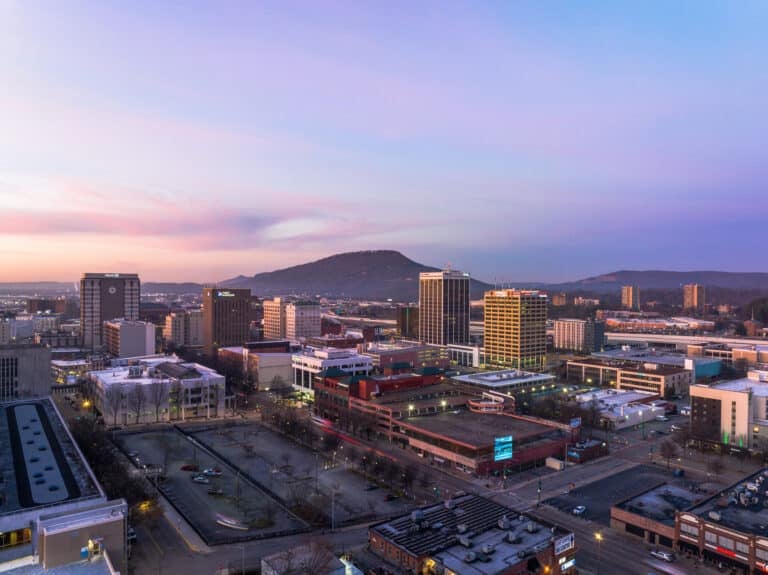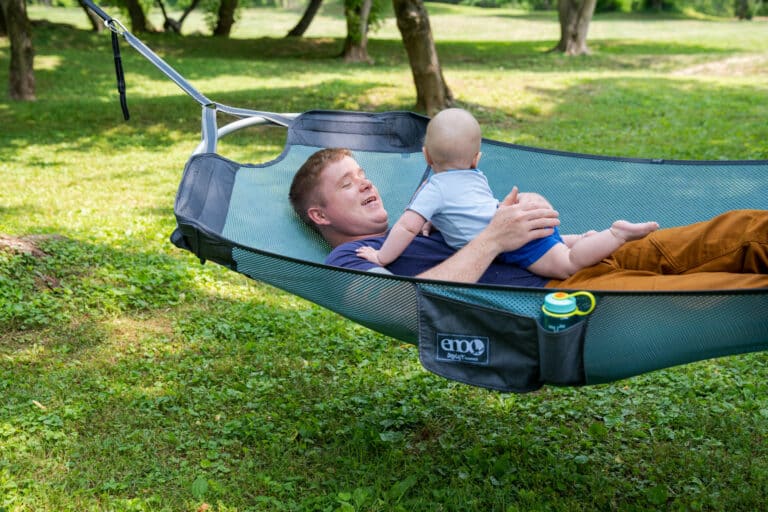Photo by Sanjay Suchak
For our May issue, artists across the Blue Ridge talked with BRO about what it meant to make music in a year without in-person performances. For the next four weeks, we will be featuring each of those artists and taking a deeper dive into their creative process.
After their annual St. Patrick’s Day show at the Jefferson Theater was canceled in 2020, Chamomile and Whiskey decided to push the release of their Ken Coomer-produced latest album, “Red Clay Heart,” to the fall. BRO caught up with guitarist and songwriter Koda Kerl about their change in plans.
BRO: Heading into 2020, what were your plans? What did your year end up looking like?
KK: It was pretty awful timing for us, as it was for a lot of people. We spent 2019 recording our third album in Nashville. It was this big, putting-all-of-our-chips-on-the-table kind of thing for us. We put a lot of money, time, and effort into this album we were so excited about. We signed with a new agent and we felt like everything was really coming together for 2020 to be our year. We had plans to release the record early in the year and do a lot of touring. Nowadays, with record sales being tough to come by, touring is really our main source of income and the main way to promote an album.
The week before the Jefferson show, that Monday, ticket sales were looking great. Then every day it just got more like, “We might not be able to do the show.” Then it was “We might not be able to do anything this whole year.” It was really fast. It was hard to do but I think it was the right call to cancel it. After that, the whole year was off the table. The festivals we were doing were all canceled as well. It was a 60-to-0 kind of thing. Suddenly everything’s gone. Shows are gone. My main source of income is gone.
The first weeks it was really hard. I was having trouble sleeping and just feeling really disappointed. As time went on, [we had] to adapt and move forward. We wound up putting the record out in the fall, which was a difficult decision. There was a lot of going back and forth with our label and our team about what the right thing to do was.
Virtual shows took off in 2020. How did you approach staying connected with fans and audiences during this time?
Quickly, that became a big thing for us. It was a chance to really stay connected with fans. People were really supportive and generous. It became kind of a way to make a little bit of money, still play material, and connect with the people that would normally come to our shows.
I always had a dream of doing a weekly piano gig where I just sat in a dive bar, drank whiskey, and played the piano while everyone hung out. I started doing that in the livestream and that gave me a chance to showcase a different side of things.
We still do them every once in a while. We did them a lot more last spring and now we’ve been doing them a little less. That was a cool, saving grace and innovation for a lot of us. We had fans or friends of ours who used to come see us all the time and then had kids or moved away and now feel like they’re not missing out because they can tune in and watch us online. I think we’ll definitely see aspects of the live streaming continue even as things hopefully get better and more shows are happening. I think the livestream is here to stay.
In a year when we’ve all been pretty socially isolated and unable to do a lot of our routine things, what were some of the things that helped you get through the past year?
From a personal standpoint, what it forced me to do was I suddenly had all of this time to learn how to do things that I used to pay people to do or rely on people to do for me. I dove deep into audio, recording, and video editing—things that I’ve always been interested in and things I’ve always wanted to do more.
We’ve actually stayed really busy on the creative side of things. It’s probably been one of the most fruitful periods for us as a band and me as a writer. When you’re on tour a lot and you’ve got other responsibilities, you get back home and you just feel like laying around. You might not feel inspired.That’s part of the reason why we decided to put our album out because by the time the summer rolled around, I already had the songs for the next record. I don’t want to back things up too much. We want to share this record we’re really proud of with people, and at the same time, we need to start thinking about the next step.
Right now, I’m up in the woods in Nelson County [Va.] where I grew up with this little cabin that my brother built years ago that I’ve been renovating into our own little studio. Just before you called, I was digging an outhouse. That’s some real Blue Ridge Outdoors stuff. I don’t think that ever would have happened if I didn’t have this big pause. I’m not a very good carpenter but I’m learning as I go. It certainly helps with my mental health and keeping my head straight a little bit throughout all this.
Have you all started scheduling live performances yet? How did you come to that decision?
That’s been one of the hardest things. You just want to do what you feel like is right. Things are starting to pick up a little bit. Some festivals are starting to reschedule. People are starting to reach out to us again. For us right now, we’re only interested in doing socially distanced outdoor shows until further notice.
The cool thing is, we live in this beautiful place. I talk to friends who live in Philly or New York, somewhere they can’t go to a brewery that has a huge field and a beautiful view of the mountains to set up an outdoor show. We’re lucky that we live around all these great festivals and all these great locations to where I think we’ll be able to do a lot safely and mindfully. We’re afforded all these great venues and spaces where it’s beautiful and spread out. But I know that’s not the case for everybody.
From your perspective, as a musician and someone who tours a lot, what do you see the live music industry looking like going forward?
There’s nothing musicians like to do more than complain about the music industry. The way I see it, there are a lot of issues in the music industry. Things have been changing a lot in the last 15, 20 years with the Internet and the move towards streaming and away from album sales. I think there are going to be a lot of changes. I think you’ll see a lot of innovation, especially with how you put on a show. There are no rules. You can do whatever the hell you want. I think people are going to feel more empowered to do that, go old school that way.
One thing that people have to remember is the music industry is so much more than just the overly loud guy like me talking into the microphone. There’s so many other people who run sound, book shows, and work at festivals. It’s such a big community of people, and so many of the most important folks aren’t the ones on stage, and they’ve all been hurting even worse than we have. At least I can go on my cell phone and do a little livestream from my piano. People throw me a few bucks and I get to still feel like I’m myself. But if your whole life has been building out music festivals, booking your small venue, or recording people, there are so many sides of the music industry, that my heart goes out for those guys more than it does for myself.
It’s a scary time. A lot of people lost people they love. You take stock in what’s important to you, what really matters, and you prioritize. I’m hopeful that there are going to be some positive changes coming out of all this in other parts of our society as well.
As we are starting to see some hope coming out of this pandemic, is there something from the past year that you’ve learned or experienced that you want to carry forward with you?
For me, it’s going to be feeling grateful. It’s such a unique profession where your ego is so tied into the way you make a living. We all love to walk out to a bunch of fans cheering for us or calling for an encore. It’s the best feeling in the world. I know that every time I get on stage from here on out, I’ll know how fragile it is and how quickly it can be taken away. I’m hopeful that as a band we’ll be able to really think about that before every show and translate some of that energy and gratefulness to putting on as good of a show as possible. We don’t have it so bad. And if you have a chance to play for people who want to hear you, hear your art, it’s a lucky thing and you should really cherish it.







